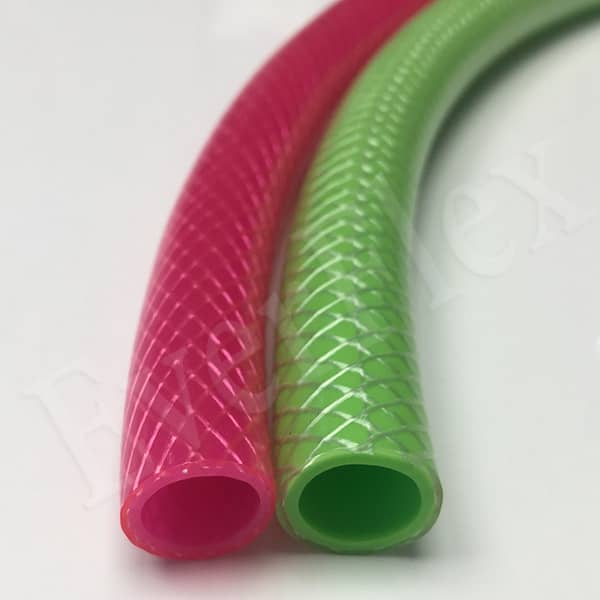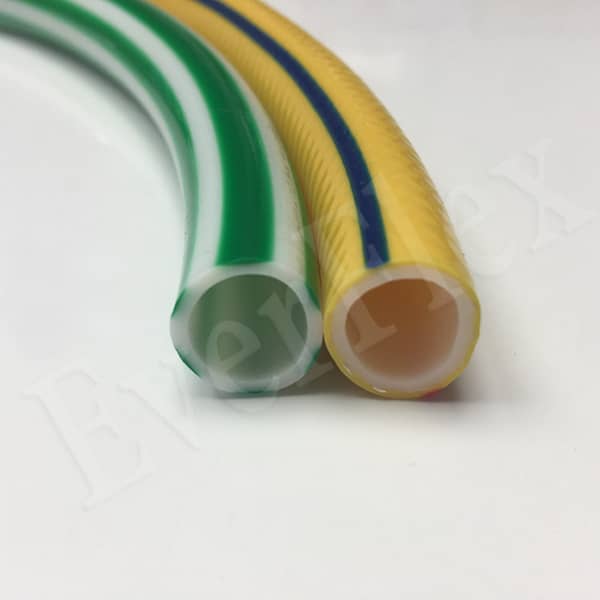
Physical property test
Hardness
Use a hardness tester or other simple tools to lightly scratch or apply pressure on the surface of the pipe. Qualified PVC fiber hose should have a certain hardness. This way, it is not easy to be scratched or dented. But the hardness should not be too high, otherwise it may cause the pipe to become brittle and easy to break.
Flexibility
Bend the pipe at a certain angle. High-quality pipes should have good flexibility. There will be absolutely no cracks or breaks. In addition, if it can return to its original shape after bending, it means that the elasticity of the pipe is good and the quality is qualified.
Tensile strength
It can be roughly judged by a simple tensile test. Clamp both ends of the pipe with appropriate tools and slowly apply tension. The pipe can withstand a certain tension without breaking, indicating that its tensile strength meets the requirements.
Chemical property test
Corrosion resistance
Take a small amount of pipe samples and soak them in a specific chemical solution for a period of time. Observe whether the pipe has discoloration, deformation, dissolution, etc. Qualified PVC fiber pipes should have good corrosion resistance. It can maintain stable performance in common chemical environments such as acids, alkalis, and salts.
Aging performance
The pipe can be placed in an aging test chamber to simulate different environmental conditions. Such as high temperature, high humidity, ultraviolet radiation, etc. After a certain period of time, observe the performance changes of the pipe. After the aging test, the physical and chemical properties of qualified pipes have not decreased significantly.







